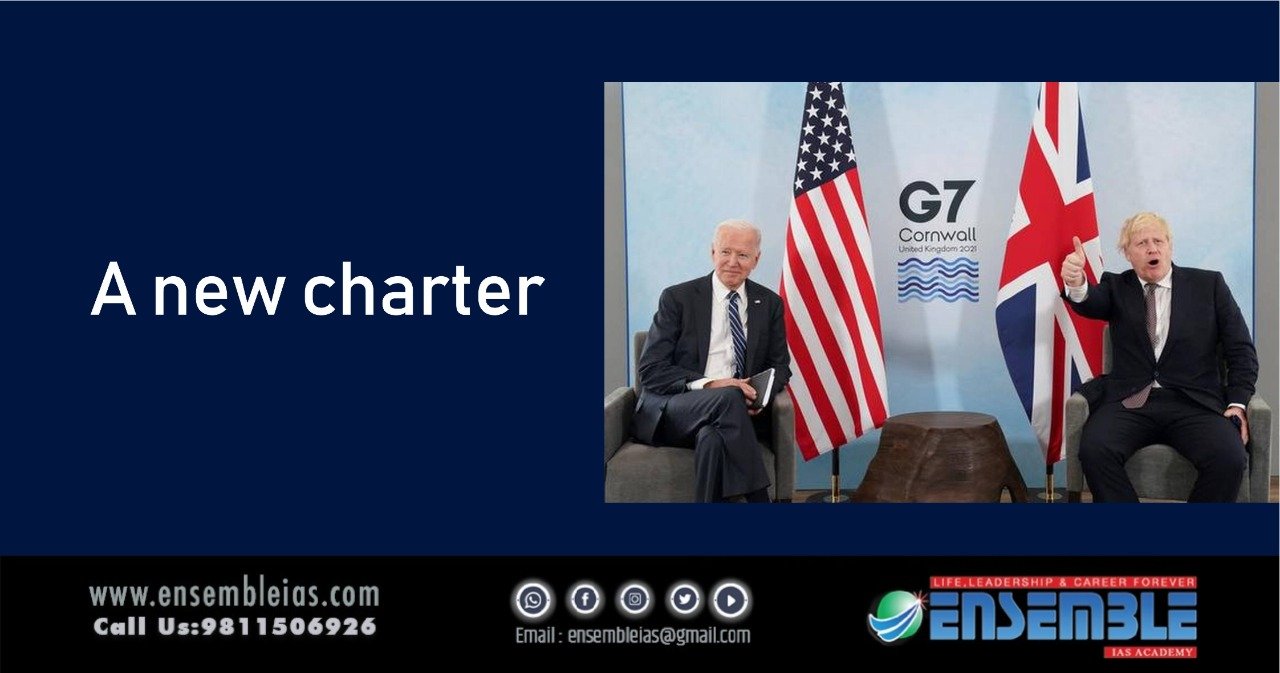A new charter
A new charter: US President Joe Biden began his eight-day long European tour by signing a “New Atlantic Charter” with the British Prime Minister, Boris Johnson, that reaffirms Anglo-American faith in democratic values. The charter promises to work closely with all democratic partners in resolving contemporary global problems. The Biden-Johnson declaration is a reprise of the Atlantic Charter signed by two of their war-time predecessors, President Franklin Roosevelt and Prime Minister Winston Churchill, in early August 1941. Eighty years ago, the Atlantic Charter provided the basis for the construction of a new global order after the Second World War. The New Atlantic Charter is based on the conviction that the West needs to reboot itself to cope with the rise of authoritarian powers like China, the devastating Covid-19 pandemic, and the expansive threat of climate change.
To buy our online courses: Click Here
The three Cs — China, coronavirus and climate change — are expected to figure prominently in Biden’s efforts to rally the West at a series of summits with the leaders of the Group of Seven leading industrialised countries, the North Atlantic Treaty Organisation, and the European Union. After four years of Donald Trump that deeply disturbed US relations with its western allies, Europe would have been happy to serenade Biden for simply restoring the traditional US warmth towards its partners. But Biden has set himself ambitious objectives — strengthening global governance through the G-7, rejuvenating the NATO alliance, and recalibrating America’s strained relations with the European Union. Sceptics point to the diminished relative strength of the US and G-7 in the global economy, the problem of military burden-sharing within NATO, and the growing trans-Atlantic differences on trade and technology. If Biden wants to mobilise Europe against China, Germany appears to be more interested in doing business with Beijing and France in promoting European strategic autonomy from Washington.
Meanwhile, the presence of India and South Africa along with Australia and South Korea at the G-7 summit is a recognition of the urgent imperative to widen the basis of the West in dealing with global challenges. If the old Atlantic Charter alienated Indian nationalism from the West, the new Charter and the rebooting of western institutions should facilitate a productive phase of India’s cooperation with the US and its allies. Although Indian nationalism had no quarrel with the liberal internationalist framework of the old Atlantic Charter, Churchill insisted that the principle of self-determination highlighted in the charter did not apply to India. Churchill could not stop India’s independence for long, but poisoned the well of India’s engagement with the West. The current Anglo-American effort to institutionalise western consultations with India is a long overdue correction. Prime Minister Narendra Modi, who is remotely joining the discussions at the G-7 summit, has an opportunity to signal a commitment to both address perceptions about shrinking democratic freedoms within India and offer substantive collaboration with the western democracies on global issues.




